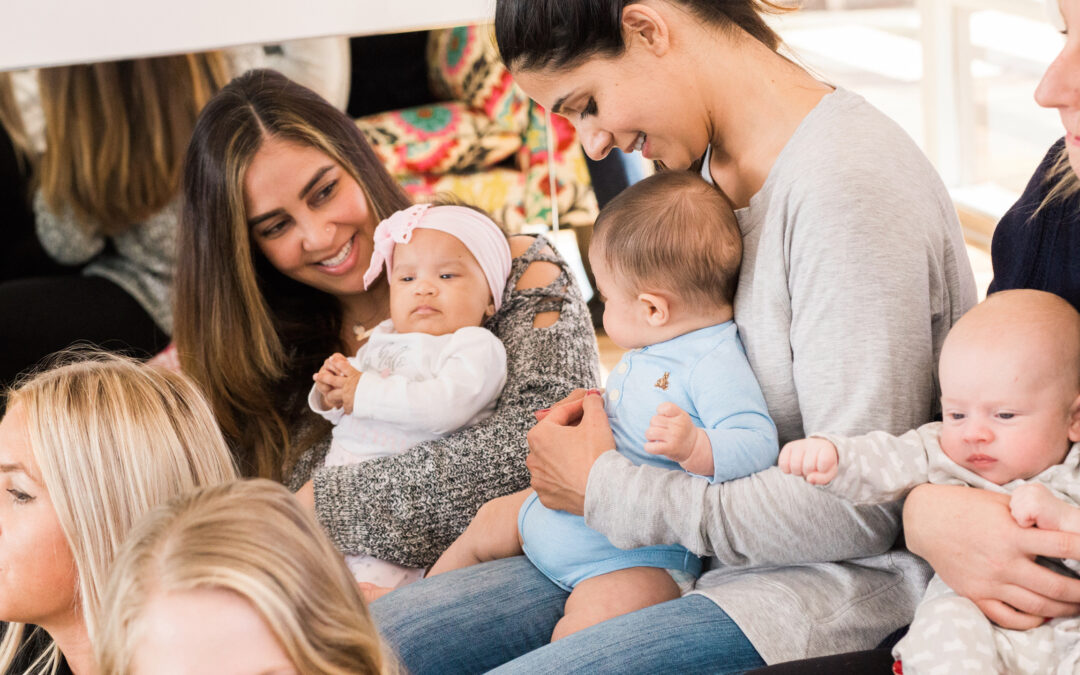By Therapist and parent coach, Hayley Goldberg Early childhood is a time of monumental growth for our toddlers and preschoolers. They are growing in so many areas—physically, cognitively, and emotionally. With their leaps in growth and development our little guys are beginning to explore their world more and enjoy a lot more experiences, and with these experiences come more feelings.

What does this emotional growth mean for us parents? It means our toddlers and preschoolers will have a wide range of emotions they will experience every day. For young children these newly felt emotions can be overwhelming. The intensity of their emotions, not understanding their big feelings, many times not having a name for their big emotions, or knowing how to regulate themselves, can leave children feeling insecure and afraid. When emotions are out of control, behavior is too. Helping kids learn to regulate their emotions starts in infancy and develops as children grow. Helping our children be aware of their feelings, understand, accept, and regulate their emotions is a key factor in raising emotionally healthy kids. Three things to keep in mind when dealing with tantrums and meltdowns from a positive discipline perspective:
- Managing your own emotions is a key first step in helping children learn to manage their own emotions. But controlling our own emotions is so much easier said than done! Especially when we are triggered by our child’s ongoing tantrums, or we are dealing with multiple meltdowns a day. It starts with us, and if we need help in learning how to manage our own emotions, that’s an investment worth making. We need to be able to bring our calm to help our children navigate their emotional storm.
- Allow time for children to feel their feelings. So much of the time we want to stop those tantrums because they are unpleasant for us. Sometimes we disapprove of their big emotional outbursts and will send our little ones to timeout expecting them to get control of their feelings and their behavior on their own. Other times we dismiss their emotions and will redirect them or distract them from their feelings. Giving children time to sit with and feel their feelings is an essential part of their emotional growth.
- Acknowledge and validate their feelings. Acknowledging feelings helps our little ones feel understood and know that their needs and feelings are important. Being empathic and validating feelings does not mean we agree with all they are feeling and certainly does not mean being permissive and allowing misbehavior to continue. Validating what our child is feeling without criticism or judgement lets our child know we hear them, and we see them struggling. Connecting with them this way is as an important step to gaining more cooperation with setting limits on unwanted behavior. For example, you can say, “I see you are so frustrated because you are trying to reach your snack and your brother is in the way. I understand you are hungry however we do not push.”
Emotions are meant to be felt and expressed. How we parents choose to interact with our children when it comes to their feelings, our response, our validation for what they are experiencing, and allowing them to feel their feelings, all go a long way in letting our children know their feelings matter and teaching them how to take care of their feelings. When we treat children with dignity, when their feelings are valued, respected and welcomed, children grow up feeling safe and comfortable with their emotions and they will thrive.
→ Our hugely popular Parenting Toddlers virtual class series, taught by therapist and parent coach, Hayley Goldberg, gets underway August 31 This is the last time the 8-week series will be held this year, so don’t miss out! You’ll learn how toddlers’ little brains work and the tools you need to help manage the tantrums, meltdowns and big emotions. We HIGHLY recommend this class and would hate you to miss it! Register now.
Want support that actually gets it?
Find your local New Mom School and connect with a community of moms, experts, and real talk that makes the fourth trimester feel a little less overwhelming.
Wishing there was a New Mom School closer to you?
You might be the one to bring it there. Learn how to open a location in your town.

